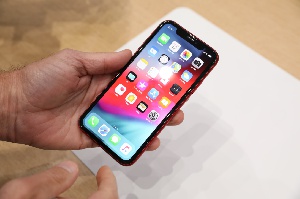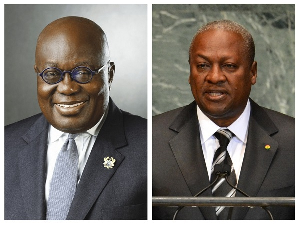 The gold-for-oil policy is aimed at addressing Ghana's cedi depreciation
The gold-for-oil policy is aimed at addressing Ghana's cedi depreciation
The concept of the ‘petrodollar’ or ‘dollar oil’ refers to the agreement made in the 1970s between the United States and Saudi Arabia, which has had a significant impact on the global economy.
In 1971, President Richard Nixon ended the convertibility of the US dollar to gold, which had been in place since the Bretton Woods agreement of 1944. This move destabilised the global economy and led to inflation and economic uncertainty. At the same time, the price of oil was rising due to increased demand from Western countries.
In 1973, Saudi Arabia and other oil-producing countries in the Middle East, collectively known as the Organization of the Petroleum Exporting Countries (OPEC), imposed an oil embargo on the US and other Western countries in response to their support for Israel in the Yom Kippur War. The embargo caused a significant increase in the price of oil and led to a global energy crisis.
The US responded by negotiating with Saudi Arabia to secure a steady supply of oil at a stable price. In exchange, the US agreed to protect Saudi Arabia and other oil-producing countries in the region and to use its influence to ensure that oil was traded in US dollars.
The petrodollar system has been a crucial component of US economic and geopolitical power over the past several decades.
Benefits of the ‘petrodollar’ to the US
This agreement had several significant benefits for the US. First, it created a strong demand for US dollars, as countries needed them to buy oil. This demand helped to prop up the US dollar and make it the dominant currency in international trade. As a result, the US has been able to finance large trade deficits and borrow money at lower interest rates than it would have been able to otherwise.
Second, the petrodollar system gave the US significant geopolitical influence in the Middle East. By becoming the protector of the region’s oil supplies, the US gained a major strategic advantage over other global powers. It has been able to use this influence to shape regional politics and support friendly regimes, while also countering the influence of rivals such as Russia and China.
Finally, the petrodollar system allowed the US to run large trade deficits without suffering the usual consequences of inflation and devaluation of its currency. Since oil is priced in US dollars, countries need to hold significant reserves of US dollars to pay for their energy needs. This has allowed the US to run large trade deficits, as other countries are willing to hold onto US dollars in order to purchase oil.
Challenges of the ‘petrodollar’
Today, the petrodollar system remains in place, with most oil being traded in US dollars. However, some countries, such as Russia, China, UAE and Kenya have been trying to challenge the dominance of the US dollar in international trade by conducting oil and other commodity trades in their own currencies.
One example of the challenges facing the petrodollar system is the growing interest in alternative reserve currencies among some of the world’s largest economies. China, for example, has been actively promoting the use of its currency, the yuan, as an alternative to the US dollar in international trade.
In recent years, China has signed currency swap agreements with a number of other countries, allowing them to settle trade in yuan rather than US dollars. Additionally, China has launched its own oil futures contracts denominated in yuan, which could potentially compete with the US dollar-denominated oil futures contracts offered by the New York Mercantile Exchange and the Intercontinental Exchange.
Another example of the challenges facing the petrodollar system is the rise of digital currencies and blockchain technology. Some experts believe that these new technologies could potentially disrupt traditional financial systems, including the petrodollar system.
For example, digital currencies like Bitcoin and Ethereum are not tied to any government or central bank and can be used to facilitate international trade without the need for traditional banking systems or reserve currencies.
Additionally, blockchain technology could be used to create decentralised energy markets that allow for the direct trading of energy between producers and consumers, potentially bypassing the need for traditional oil trading in US dollars.
Yes, before Dr. Bawumia, Ghana’s Vice President, announced the Gold for Oil programme in 2021, Kenya reached an agreement with Saudi Arabia and the United Arab Emirates to start selling Kenyan crude oil to the two countries in exchange for their respective currencies, the Saudi riyal and the Emirati dirham. This agreement is significant because it breaks from the traditional petrodollar system in which oil is priced exclusively in US dollars.
The deal is part of Kenya’s efforts to diversify its export markets and reduce its dependence on traditional trading partners. It also reflects the growing trend among some countries to seek alternatives to the US dollar in international trade.
For Saudi Arabia and the UAE, the agreement may offer some advantages as well. By purchasing oil using their own currencies, they may be able to reduce their exposure to fluctuations in the value of the US dollar and diversify their own currency reserves.
It remains to be seen whether this agreement will lead to broader changes in the international oil trade or the petrodollar system more broadly. However, it is clear that some countries are exploring alternatives to the traditional system and that the US dollar’s dominance in global trade may face increasing challenges in the years to come.
Challenges faced by developing countries
The petrodollar system has had significant implications for countries that are unable to raise enough US dollars to pay for their energy needs. Since oil is priced in US dollars, countries that do not earn enough dollars from exports or other sources must purchase them on the international market to pay for their oil imports. This can create significant difficulties for countries that are unable to earn or borrow enough dollars to meet their energy needs.
For example, if a country needs to import oil but does not have enough US dollars to pay for it, it may have to borrow dollars from international lenders. However, borrowing dollars can be expensive, as lenders may charge high interest rates or demand collateral to secure the loans. Additionally, borrowing dollars can create a cycle of debt, as countries may need to borrow more and more dollars to pay off their existing debts.
Another consequence of the petrodollar system is that it can lead to the depreciation or devaluation of other countries’ currencies. Since other currencies are not used to price oil, they may be seen as less valuable than the US dollar in international trade.
This can lead to a decline in the value of other currencies relative to the US dollar, making imports more expensive and exports less competitive. In some cases, this can lead to inflation or even economic crises, as countries struggle to maintain the value of their currencies and pay for their energy needs.
The petrodollar system has created significant challenges for countries that are unable to raise enough US dollars to pay for their energy needs. While the system has been a boon for the US and other countries that earn dollars from exports, it has created significant imbalances in the global economy and has contributed to currency instability in some parts of the world.
Conclusion
In conclusion, Ghana’s gold-for-oil is not new, Russia and China have established a gold-for-oil trading system that allows them to bypass the traditional petrodollar system. The petrodollar system has played a significant role in shaping the global economy and international trade over the past several decades.
By pricing oil in US dollars, the system has created a strong demand for the currency and helped to prop up its value. It has also given the US significant geopolitical influence in the Middle East and allowed the country to run large trade deficits without suffering the usual consequences of inflation and devaluation.
However, the petrodollar system has also created challenges for countries that are unable to raise enough US dollars to pay for their energy needs. This has led to difficulties in some parts of the world and contributed to currency instability in some countries.
Recently, there have been signs that the petrodollar system is facing some challenges. As more countries seek to diversify their reserves and reduce their dependence on the US dollar, the demand for alternative currencies could increase. Additionally, the rise of digital currencies and blockchain technology could disrupt traditional financial systems, including the petrodollar system.
While it remains to be seen how the international oil trade will evolve in the future, the trends suggest that the dominance of the US dollar in global trade may face increasing challenges in the years to come. The agreement between Kenya and Saudi Arabia and the UAE to trade oil using their respective currencies may be a harbinger of broader changes in the international trade system.
- Gold for oil: Oil was bought at a premium not a discount – John Jinapor
- Gold for oil policy will increase balance of payments, reduce depreciation – PMMC
- We have everything, let’s redefine our narrative – Bawumia
- Gold-for-Oil agreement must go before parliament – Mahama
- Gold-for-Oil agreement must go before parliament – Mahama
- Read all related articles










